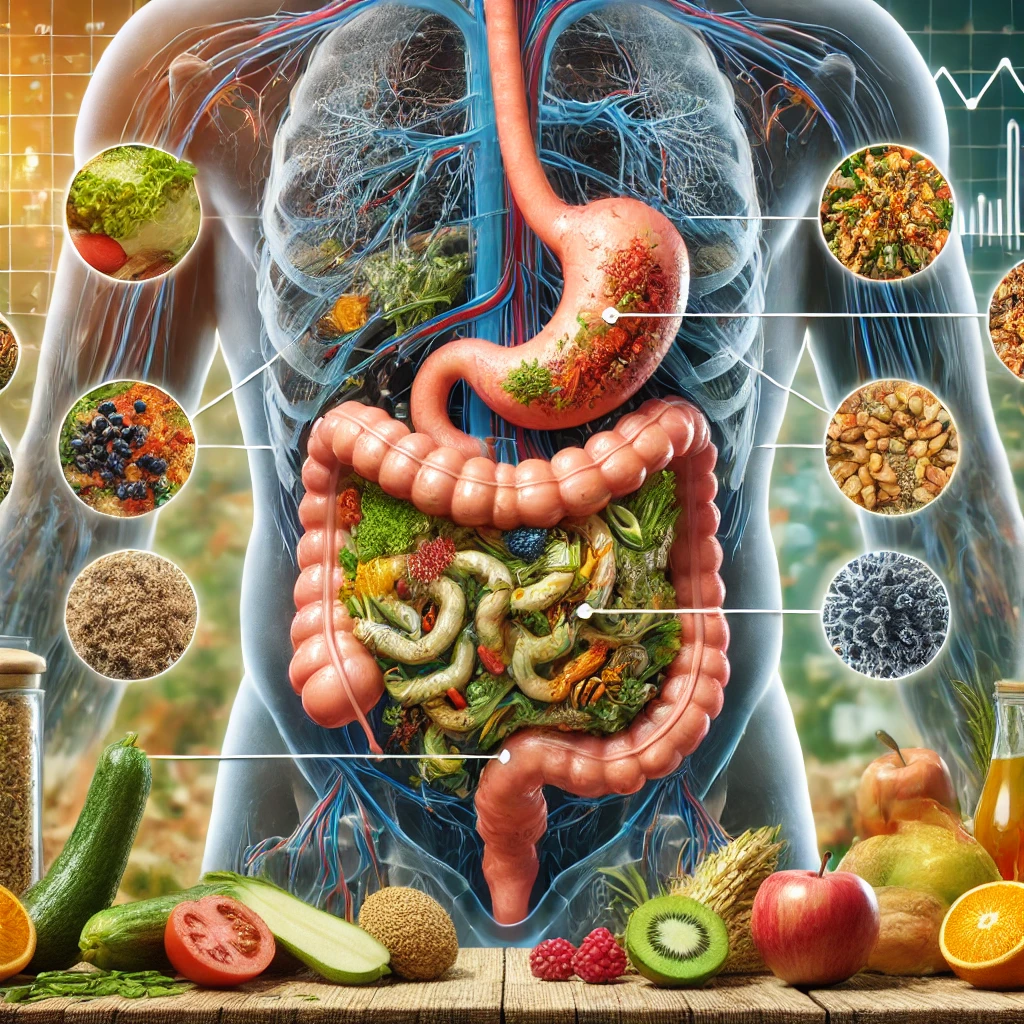How Does Food Affect Your Gut?
Article Source: The Impact of Diet on the Gut Microbiome

Why You Should Care
Your gut microbiome is made up of trillions of bacteria that play a crucial role in your overall health. The food you eat directly affects the balance of these bacteria, influencing everything from digestion to immune function. Understanding how your diet impacts your microbiome can help you make better food choices for a healthier life.
Answering the Question… How Does Food Affect Your Gut?
Diet has a significant impact on the gut microbiome. The study found that diets rich in fiber, such as fruits, vegetables, and whole grains, increase the diversity of beneficial bacteria in the gut. In contrast, high-fat and high-sugar diets reduce this diversity, leading to an imbalance that can contribute to conditions like obesity, diabetes, and inflammatory diseases. The research highlighted that a Mediterranean diet could increase the abundance of good bacteria by up to 20%, improving gut health and overall well-being.
How Was the Study Done?
Researchers analyzed dietary patterns of participants and their gut microbiome composition through stool samples. They compared the microbiomes of individuals following different diets, such as high-fiber, low-fat, and high-protein diets. Advanced sequencing techniques were used to identify the types and quantities of bacteria present, and statistical analysis was conducted to determine the relationship between diet and microbiome diversity.
What Was Discovered?
- Dietary Influence: The study showed that a high-fiber diet can increase beneficial bacteria by up to 20%, while a diet high in fat and sugar can decrease it by 30%. This dramatic shift in bacterial populations shows how quickly diet can impact gut health.
- Microbiome Diversity: A diverse microbiome, which is linked to better health outcomes, was found to be more common in individuals who consumed a variety of plant-based foods. Specifically, individuals who ate more than 30 different plant foods weekly had 40% more diverse microbiomes than those who consumed fewer than 10 types.
- Health Implications: Diets low in fiber and high in processed foods were associated with a 25% increase in harmful bacteria, contributing to a higher risk of chronic diseases like obesity and type 2 diabetes. The study found that individuals with diets high in processed foods had a 40% higher risk of developing metabolic syndrome.
- Mediterranean Diet Benefits: The Mediterranean diet, rich in fruits, vegetables, and healthy fats, was found to significantly enhance microbiome diversity, reducing the risk of inflammatory diseases by 15%. People adhering to this diet had a 30% lower incidence of inflammatory bowel disease (IBD) compared to those on Western diets.
- Protein Sources: The study also found that plant-based proteins, such as legumes and nuts, supported a healthier microbiome compared to animal-based proteins, which were linked to higher levels of harmful bacteria. Individuals consuming primarily plant-based proteins had a 25% lower concentration of harmful bacteria like Clostridium difficile, a pathogen often associated with gut-related diseases.
Why Does It Matter?
Understanding the connection between diet and the microbiome is crucial for making informed dietary choices that promote gut health and overall well-being. By adopting a diet rich in fiber and plant-based foods, you can enhance your microbiome's diversity, leading to better digestion, stronger immunity, and a lower risk of chronic diseases.
Link to full article: The Impact of Diet on the Gut Microbiome
